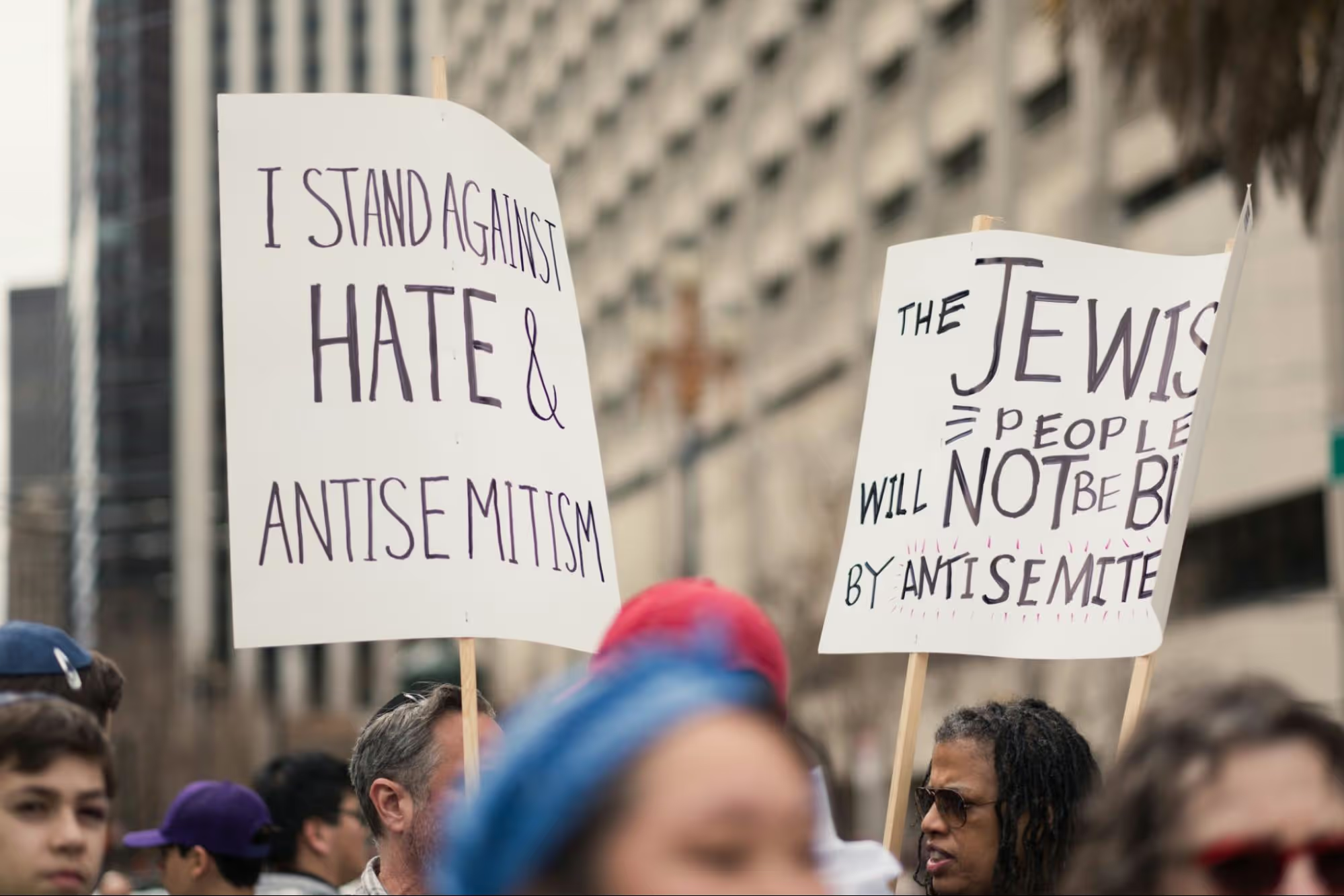Research
What is Happening with the Johnson Amendment?
Earlier this month, the IRS made an alarming legal filing arguing that religious leaders could endorse political candidates in houses of worship without losing their tax-exempt status, officially breaking with more than seventy years of legal precedent prohibiting churches and nonprofits from officially endorsing political candidates. Since then, there’s been a lot of confusion around what is and isn't permissible, what this decision sought to achieve, and what this means for how liberal movements should respond. Here are responses to some of the most widely asked questions around this important issue.
What is the Johnson Amendment?
In 1954, Congress approved an amendment by then senator Lyndon B. Johnson to prohibit 501(c)(3) organizations from engaging in any political activity, particularly as it relates to campaigning for or against a particular candidate for political office. The Johnson Amendment defined a 501(c)(3) organization as one “which does not participate in, or intervene in (including the publishing or distributing of statements), any political campaign on behalf of (or in opposition to) any candidate for public office." 501(c)(3) organizations are the most common tax-exempt status for nonprofits and houses of worship.
While these types of organizations cannot endorse a particular candidate during an election cycle, the National Council for Nonprofits explains that they are allowed a limited amount of lobbying flexibility and can advocate for or against a particular issue in the political arena. The Johnson Amendment, as it is widely understood, is an important safeguard against nonprofits and houses of worship using their tax exempt status to act as political lobbying organizations without the necessary regulations behind them. Organizations which seek to lobby for candidates during an election cycle are commonly registered as 501(c)(4) organizations. For more information about the difference between 501(c)(3) and 501(c)(4), see this helpful primer from the team at Alliance for Justice.
How can houses of worship engage in advocacy while respecting church-state separation?
Houses of worship already have significant latitude to engage in issue-based campaigns that align with an interpretation of their faith. Houses of worship can lobby Congress, advocate for or against certain policy positions, and individual faith leaders can endorse candidates in their personal capacity but not from the pulpit. Our partners at the Baptist Joint Committee have compiled a helpful explainer to explore some of these details in more depth.
What is this most recent decision?
On July 7th, 2025, the IRS responded to a lawsuit from the National Religious Broadcasters association, an evangelical media group, and two Texas churches who sought to argue that the Johnson Amendment infringed on their freedom of speech and religion. Rather than defending the law as passed by Congress in the courts, the IRS entered into a consent agreement with the plaintiffs allowing those specific churches to communicate which candidates they endorse and urge their congregations to vote accordingly, under specific circumstances. If done through customary channels to congregations, then the IRS said it is not considered participation or intervention in a political campaign. By weaponizing freedom of religion to create a go-around for the Johnson Amendment, the IRS effectively allowed houses of worship to utilize their tax-exempt status to support particular candidates for office.
Why is the Trump administration doing this?
The Trump administration has long been opposed to the Johnson Amendment. For many decades, the IRS has turned a blind eye to whether the political advocacy happening in right-wing churches met this criteria. However, in 2017, the first Trump administration issued an executive order which effectively nullified the enforcement of the Johnson Amendment by telling the Treasury Department to be lenient in how they enforce it. Officially eliminating the Johnson Amendment would require an act of Congress or the Courts.
Why is this a problem?
As explained by Guthrie Graves-Fitzsimmons, Vice President of Programs and Strategy at Interfaith Alliance. “This move represents a grave threat to healthy boundaries between government and religion. It aims to heavily politicize the pulpit, and could turn some religious institutions and organizations into thinly-veiled fronts for partisan groups and candidates.
“Current law strikes the right balance, allowing tax-exempt houses of worship to engage in moral advocacy, but not to tell their congregations who they should or should not vote for,” Graves-Fitzsimmons said. “This radical change is clearly part of the Trump Administration’s broader attempt to co-opt and weaponize organized religion as a tool of partisan political power.”
In 2017, Interfaith Alliance supported a letter from faith leaders calling on Congress to uphold the Johnson Amendment. Many of our closest partners, including Americans United for Separation of Church and State, the Religious Action Center of Reform Judaism, and the Baptist Joint Committee, are mobilizing to challenge this most recent attack and defend true religious freedom.
Together with our partners, Interfaith Alliance is leading a sign-on letter of over 1,000 nonprofit organizations calling to maintain the independence of houses of worship from partisan campaigning. The letter explains how this attack on the Johnson Amendment risks completely reshaping how money flows through our political system and would open the door for political actors to use charitable nonprofits as conduits for anonymous campaign funding. By taking advantage of the beneficial tax status of 501c(3) nonprofits, removing the Johnson Amendment would shift the financial burden of political campaigns onto taxpayers, whether they support the given candidates or not.
Transcript

The Critical Need for Humanist Inclusion
Humanism is a non-theistic worldview centered on ethical living and human responsibility, long protected as a religion under the First Amendment. A recent Texas court ruling threatens these protections by excluding non-theistic beliefs. Interfaith Alliance is defending equal religious freedom for Humanists and all belief systems.
.jpg)
Trans Rights and Religious Freedom
Over the past few years, we have witnessed an alarming increase in prejudice against transgender people and attacks on the LGBTQ+ movement. This prejudice has manifested in several ways: bathroom bills denying access based on gender identity, denial of medical care for critical health services, and alarming rates of hate crimes and violence. Unfortunately, much of this rise in hatred has been fueled by religious rhetoric. To explain why the pro-democracy faith movement proudly supports trans people and all members of the LGBTQ+ community, we offer answers to some of the most commonly asked questions about religious freedom and the trans rights movement in the United States.


